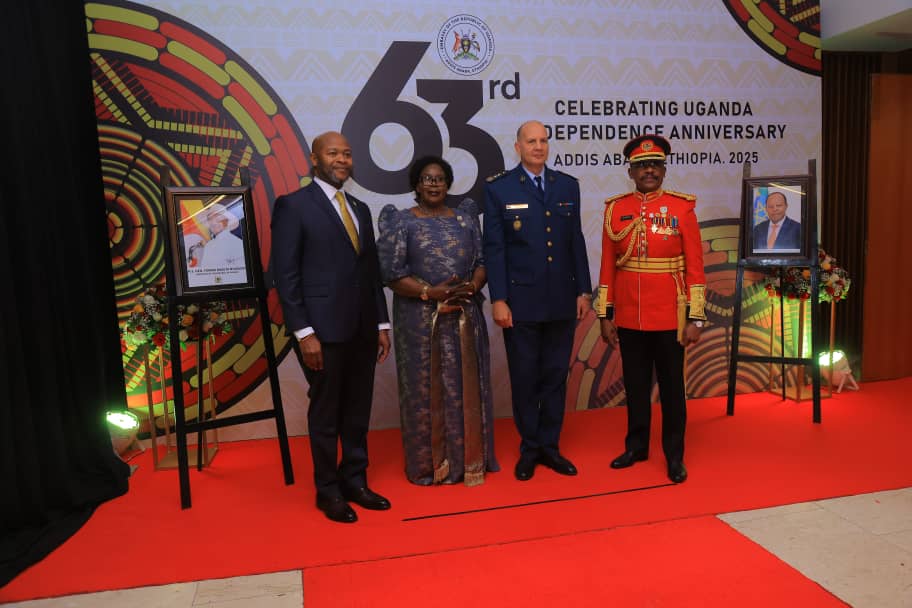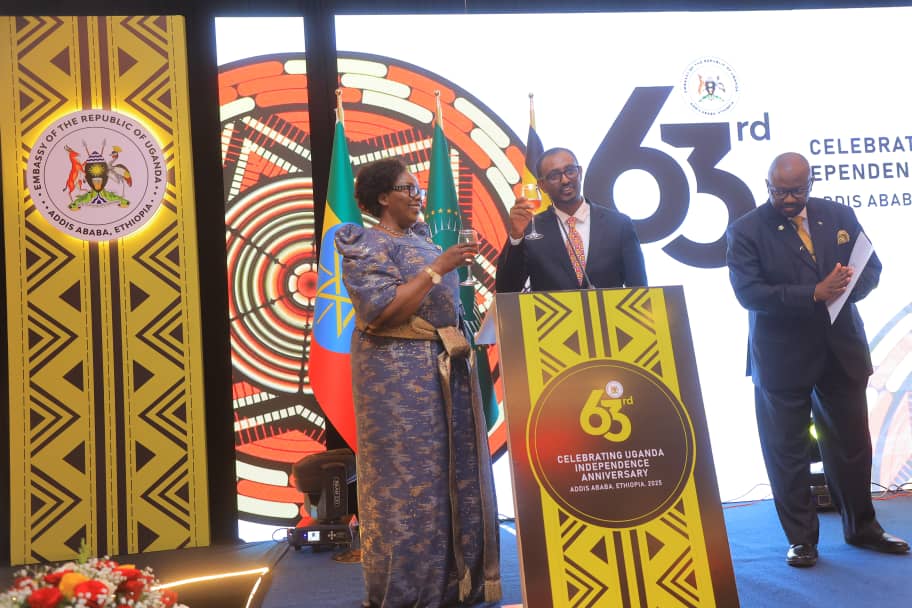Uganda has utilized its presence in the African Union headquarters city to court international investment, hosting a major exhibition on Thursday aimed at attracting capital to key economic sectors.
The event, held at the Hilton Hotel to mark the country's 63rd independence anniversary, was hosted by the Uganda Embassy and drew hundreds of diplomatic officials, business leaders and dignitaries.
The agenda included presentations from the Uganda Investment Authority and the Uganda Tourism Board, alongside a cultural show.
Addis Ababa is considered a crucial venue for such promotion, given its status as the continent’s main diplomatic and political centre, hosting most UN member state diplomatic missions and the African Union. This concentration of high-level officials and international organizations creates a valuable market for business engagement and luxury tourism.
Ambassador Rebecca Amuge Otengo, Uganda’s permanent representative to the African Union and ambassador to Ethiopia, highlighted the country’s journey to becoming an "island of peace and stability" after a history of internal division.
The ambassador also emphasized Uganda’s commitment to regional stability, citing its decision to host more than 1.6 million refugees, a policy she linked to the nation’s experience of having many citizens displaced during the 1970s and 1980s.
Ambassador Otengo strongly urged that the excellent bilateral relations between Uganda and Ethiopia be converted into increased, mutually beneficial economic activities.

The focus on Ethiopia is strategic. With a population exceeding 120 million, a burgeoning middle class and advanced leather and textile industries, the nation is both a key source market for tourists and a destination for trade.
The Ugandan community in Ethiopia includes hundreds of expatriates working across the AU system.
Ethiopian officials supported the call for closer economic ties. Ambassador Zerehun Abebe, director of African affairs in the Ministry of Foreign Affairs, praised Uganda’s role in promoting peace and reiterated the need for both nations to tap into mutual opportunities.
The exhibition highlighted investment prospects in crucial sectors such as tourism, agro-processing, energy, manufacturing and services.
By utilizing the African Continental Free Trade Area, Uganda sees opportunities to export agricultural products, textiles and educational services to Ethiopia’s vast market.
Officials noted the four daily direct flights connecting Kampala and Addis Ababa as a strong enabler for increased business collaboration. The tourism boards are also promoting the idea that the two nations’ diverse attractions are complementary, benefiting tour operators who can arrange multi-country travel itineraries.


